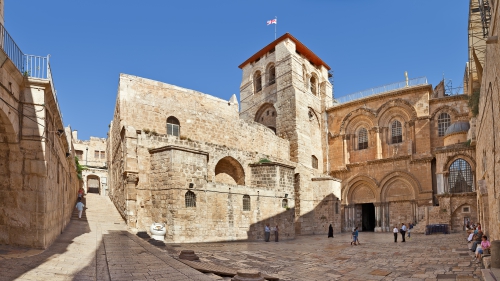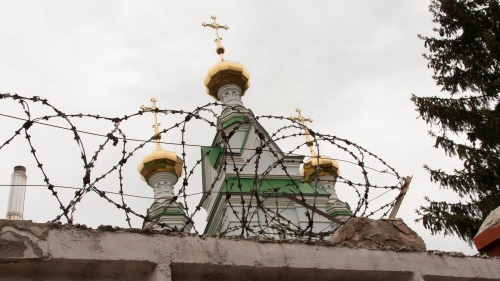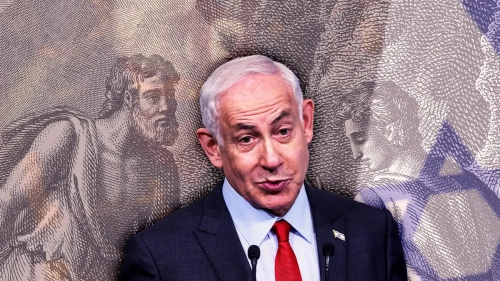Analyzing Muslim/Copt Tensions in Egypt: Part II
The recent religious violence between Muslims and Coptic Christians in Upper Egypt, while indicative of significant tensions between the two groups, must be considered in the light of the largely congenial past relations. The violence, which flared up on December 31 and has since resulted in the death of 19 Copts and one Muslim and the January 8 detainment of 40 people suspected of instigating the violence, could possibly be used as evidence by both Muslim and Coptic extremists to reinforce a notion of irreconcilable differences between the two groups. While differences do of course exist, history proves they are not irreconcilable but rather a result of twentieth century political and economic developments.
When Islam spread to Egypt in the seventh century, the Coptic Church had already evolved as a distinct identity from both the Vatican and the Eastern Orthodox Christian branches. In 451 CE, the Copts were excommunicated from the Orthodox Church and the Byzantine rule over Egypt became increasingly hostile to the Coptic Church. With the defeat of the Byzantines by the Muslims, Copts were granted a protected status and no doubt welcomed the liberation from Byzantine occupation. Although different periods of Islamic rule exhibited varying degrees of tolerance towards the Coptic minority, never were Copts victimized by the same genocidal policies to which European Christian rulers subjected religious minorities. Copts were generally an integral component of the government administration and national economy under Muslim rule.
Dr. M. Trabia of the University of Nevada at Las Vegas writes in his "Brief Review of Modern Egyptian History" that instances of relatively benign Muslim intolerance towards the Coptic Church often coincided with massacres and deportations of Muslims under Christian rule in Europe and parts of the Middle East. But, writes Trabia, this does not mean Christians were always "just living happily" under Muslim rule, as some Muslims have suggested. Yet neither is it true, as some Copts allege, according to Trabia, that Copts were "living under horrible persecution for thousands of years."
With the British occupation of Egypt beginning in the nineteenth century, Copts became intimately involved in the independence movement alongside their Muslim countrymen. Copts became involved in the Wafd party, a secular nationalist party that came to prominence after the 1919 Egyptian rebellion against British occupation. The popularly supported Wafd party was the most important player in Egyptian politics until banned by Jamal Abdul Nasser in the 1950s. But Coptic allegiance to the Egyptian state has not always been unquestioned. The Ottomans accused the Coptic Church of siding with the French in the early nineteenth century, and Anwar Sadat, during his rule in the 1970s, accused the Coptic Church of sectarian sedition and imprisoned the Coptic pope.
Tensions are no doubt heightened by an apparent economic disparity between Muslims and Copts. Copts have traditionally had a monopoly on such economically vibrant professions as bookkeeping and land surveying. But during the twentieth century, and mostly as a result of British occupation, Copts came to be increasingly disproportionately represented among Egypt's private industrial class and wealthy elite, according to a Library of Congress country study. While not mentioning Copts directly, a historical analysis by the Egyptian Ministry of Tourism relates that many of Egypt's professional class, in which Copts were disproportionately represented, were trained by the British, often in Britain itself.
Another source of tension between Copts and Egypt's majority Muslim population has been the failure of the secular state to respond to Egyptian needs on the popular and ideological level. The activities of the Muslim Brotherhood and other groups identified with Islamic revival in Egypt have their basis in dissatisfaction among students and the lower classes. Such groups are either disillusioned with the government's perceived sellout to Western interests in the Middle East or have suffered humanitarian and/or economic degradation under the rule of a government accused - by domestic elements as well as international groups such as Transparency International and Amnesty International - of corruption and human rights violations.
Muslim tolerance or intolerance of Egypt's Coptic minority, as was the case during the Crusades and the Spanish inquisition, cannot be separated from the current reversal of Muslim fortunes around the world. Popular frustration is no doubt exacerbated by a government that is perceived by many as incompetent and/or subservient to foreign interests. Copts are not the cause of these frustrations, but they are an easy target, especially where past Western intervention and current Western media intervention can be seen to benefit Coptic interests. Whatever tensions do exist between Muslims and Copts in Egypt, history reveals that they are more the result of current economic and political concerns rather than insurmountable religious polarization.
Zakariya is a regular contributor to iviews.com

















